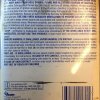- Joined
- Feb 6, 2010
- Messages
- 1,427
I have been using 3M super 77 multipurpose spray adhesive to attach sandpaper to my 9 inch disc sander. I just got a Rod Nielsen magnetic disc system with extra discs so I can change grits quickly. When I was reading about the Nielsen disc system I noticed that many knife makers use 3M Feathering compound so I bought a big tube and away I went. It worked fine until I had to take the adhensive ff. I was using the 3 M spray adhesive I discovered that acetone melts the residue off easily witha cloth or a scotchbrite kitchen pad wetted with acetone. This leaves a disc shiny and clean. the acetone barely affected the feathering compound. I ended up using 4x steel wool wetted with acetone to clean the disc and finished with a sanding block with 320 grit paper on it. What do you guys use? I was going to try carb cleaner or "goof off" next but I went back to the spra adhesive. Am I missing something again...like maybe a clue??? thanks for any solutions that work. Larry


